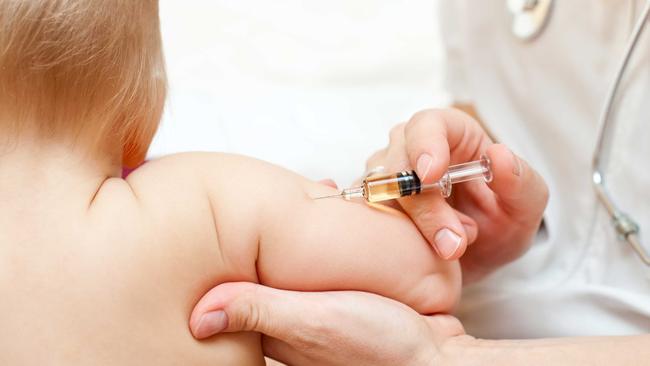Today in WA: push for national meningococcal vaccine
An emerging strain of meningococcal has prompted the Barnett government to push for a national vaccination program.

An emerging strain of meningococcal that killed two West Australians last year has prompted the Barnett government to push for a national meningococcal vaccination program.
WA will become the first state to offer a free vaccine for four types of meningococcal disease, including the W strain that infected then claimed the life of a small child and an elderly man in Perth last year. A fit 24-year-old university student was diagnosed with the Y strain in Perth last October and died seven days later. The vaccine will immunise against the A, W, Y and C strains and will be given to 15, 16 and 17-year-olds in WA schools from April. At the same time, 18 and 19-year-olds will be offered the vaccine at health clinics.
WA health minister John Day said experience in the United Kingdom and elsewhere suggested that, without effective intervention now, W infection rates would continue to escalate. He began lobbying former Federal health minister Sussan Ley for a national meningococcal vaccination program last year. Mr Day has told new Health Minister Greg Hunt that he will again try to get agreement for a national approach at the Australia Health Ministers Advisory Council Meeting on February 17.
The introduction of free meningococcal C vaccinations is credited with a sharp drop in cases a decade ago, but the emerging W strain has alarmed health authorities.
Mr Day told reporters the incidence of the W strain of meningococcal disease has been rising in all states and the Australian Capital Territory, but not in the NT. In WA, there had usually been just one case a year until 2015 when there were four cases followed by 14 cases last year. In NSW the number of cases of all strains of meningococcal has climbed from 35 in 2014 to 63 between January and November last year, according to Meningococcal Australia.
The organisation’s published figures show that in Victoria, the overall number of meningococcal cases rose from 26 in 2014 to 57 between January and November last year.
An estimated 150,000 teenagers are expected to be vaccinated at WA schools and health clinics starting in April. They are considered the most likely carriers.
Professor Tarun Weeramanthri, WA’s chief health officer, said the state government was acting on the best advice of experts in immunisation across Australia.
“We have been having very extensive conversations with the Commonwealth and are certainly hopeful that over the next year or two there will be a national program rolled out,” he said.
Mr Hunt has asked his department to consider if a national vaccination program is appropriate, according to a spokesman.
The spokesman said Mr Hunt welcomed WA’s decision as “sensible and appropriate under the circumstances”.



